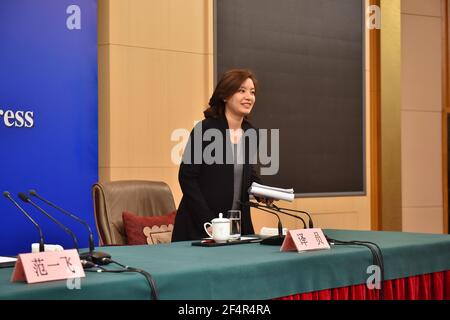

There was no definitive modern version of the Taipingjing until 1960, when Wang Ming published the Taipingjing Hejiao. : 23 The Taipingjing claimed that a better era than the one experienced by the Han dynasty can only begin with the emergence of a new healthy emperor, a new Heavenly Mandate and an end to evil omens. : 22 This balance was so delicate that the suffering of one entity was enough to make things out of synch. There was no infant mortality, no bad harvests and the climate was convenient. Chinese antiquity was divided into three eras: High Antiquity, Middle Antiquity and Late Antiquity, but it was only High Antiquity that contained a time of Great Peace, : 22 maintained with the collaborative efforts of the rulers of that era and the Celestial Masters. Salvation lies in the hand of great princes known as Celestial Masters. : 153 The Universe reciprocates the mortal realm's condition for there to be balance again, the people must heal themselves and cultivate their inner Dao. Humans have been polluted by their sins and their ancestors' sins (evil accumulated through many generations). There is also chaos in the courts of the imperial house, proven by recorded events such as freakish births (perhaps a hint at the meddling of eunuchs), all of which demonstrate Heaven's displeasure towards the mortal realm. There is a loss of cosmic balance, and this is made obvious by omens such as droughts, floods, famines, epidemics and other natural disasters. The main idea brought forward by the scriptures is that the world is in a terrible state of chaos. : 21 The idea of the "Great Peace" became more prominent during the Han period. The Taipingjing is a guide that reveals the proper methods to bring forward an era of great peace or equality – the "Great Peace" -, an idea that probably dates back to the Warring States period. 1 Fundamental concepts in the Taipingjingįundamental concepts in the Taipingjing.For more guidance, see Wikipedia:Translation.You should also add the template to the talk page.A model attribution edit summary is Content in this edit is translated from the existing Chinese Wikipedia article at ] see its history for attribution. You must provide copyright attribution in the edit summary accompanying your translation by providing an interlanguage link to the source of your translation.If possible, verify the text with references provided in the foreign-language article.


Do not translate text that appears unreliable or low-quality.Consider adding a topic to this template: there are already 810 articles in the main category, and specifying |topic= will aid in categorization.Machine translation like DeepL or Google Translate is a useful starting point for translations, but translators must revise errors as necessary and confirm that the translation is accurate, rather than simply copy-pasting machine-translated text into the English Wikipedia.Both of the two students guided by her have won the first prize in these two competitions. She has won the Excellent Teacher’s award or guiding students’ competition for Beijing University Students’ Public Speaking Competition and FLTRP Cup Competition in Beijing. She has won the third prize in the Third Teaching Competition of SFLEP Cup in Beijing. Another book has been selected as the BUCT Top-quality Teaching Materials. One of the books complied by her has been selected as the Municipal Top-quality Teaching Materials. She is the associate editor-in-chief of the Book “English Business Correspondence and Email Writing”. She has also compiled 6 textbooks in English. One is titled “The Greatest Lies in History ” with 130000 words. The following are the major courses lectured by her: Comprehensive English, English Phonetics, Intercultural Communication, English Drama, Second Language Acquisition, English Grammar and English Writing. She has been teaching for more than 15 years at the University of Chemical Technology. She has been a visiting scholar of Beijing Foreign Studies University. She graduated from The University of York with a Master degree in Language Learning and Education. Zhang Jing, Lecturer of English Department


 0 kommentar(er)
0 kommentar(er)
